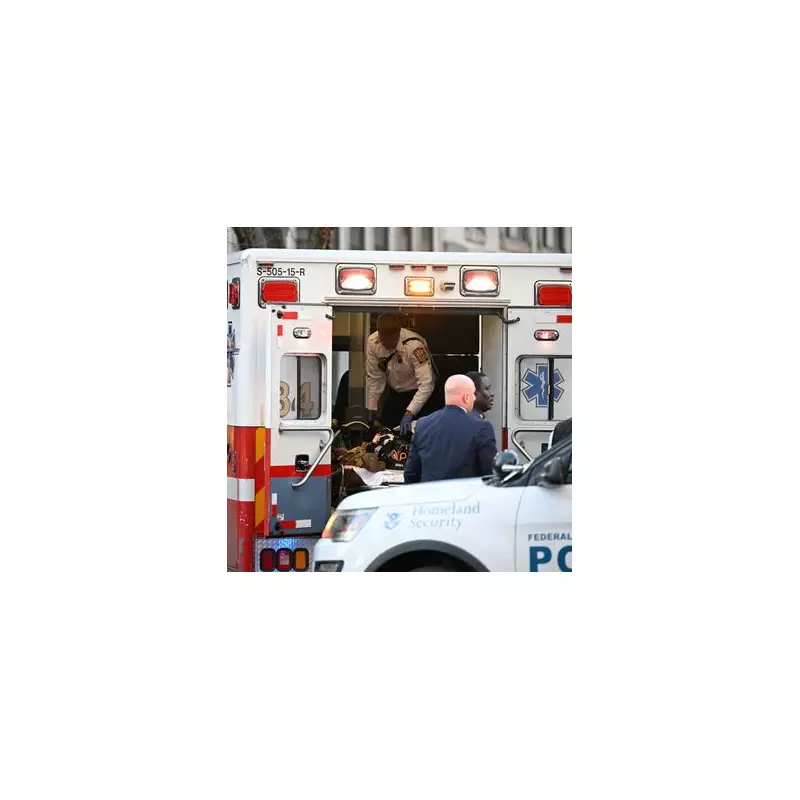
Chaos erupted in Washington DC on Wednesday after a shocking daylight attack left two National Guard soldiers wounded just blocks from the White House. The incident prompted an immediate lockdown of the US Capitol complex and a fierce response from President Donald Trump, who swiftly announced a major clampdown on immigration.
The Attack and The Victims
The shooting occurred on the corner of Farragut Square, a central location in the nation's capital. The two victims were identified as National Guard reservists from West Virginia, deployed to Washington DC as part of President Trump's ongoing crime reduction initiative.
While the President confirmed the soldiers were critically wounded, initial reports were conflicting. West Virginia's Republican governor, Patrick Morrisey, initially stated the soldiers had died, a claim he later retracted, citing "conflicting reports." One of the reservists has since been named as Andrew Wolfe, an alumnus of Musselman High School in West Virginia.
Vice President JD Vance later addressed troops in Kentucky, describing the soldiers as being in "pretty tough condition" and requesting prayers for their recovery.
The Suspect and The Political Fallout
Authorities identified the suspect as a 29-year-old male. President Trump, in a nighttime address, claimed the Department of Homeland Security had identified the individual as an Afghan national who entered the United States in 2021.
US media outlets later named him as Rahmanullah Lakanwal. According to a relative, Lakanwal grew up in Khost province and had served for a decade in the Afghan army alongside US Special Forces, during which time he was reportedly injured. He arrived in the US on September 8, 2021, as part of Operation Allies Welcome, the resettlement programme following the US military withdrawal from Afghanistan.
Seizing on the attacker's background, President Trump announced a significant policy shift. US Citizenship and Immigration Services (USCIS) confirmed it has stopped processing all Afghan immigration requests indefinitely. In a speech, Trump declared, "We must now re-examine every single alien who has entered our country from Afghanistan under Biden." He also veered off-topic to criticise other immigrant communities, making baseless claims about Somalian residents in Minnesota.
Condemnation and Broader Implications
Advocates for Afghan resettlement were quick to respond, urging the public not to demonise an entire community. Shawn VanDiver, president of the nonprofit AfghanEvac, condemned the violence but rejected "any attempt to leverage this tragedy as a political ploy to isolate or harm Afghans who have resettled in the United States."
The attack also has direct implications for the ongoing National Guard presence in Washington DC. A Pentagon chief, Pete Hegseth, confirmed that of the thousands of soldiers deployed, 2,100 remain in the capital, with a request for an additional 500 troops. Hegseth stated the attack would "stiffen our resolve" to make Washington, DC safe.
This incident places a sharp focus on the intersection of national security, immigration policy, and the deployment of military personnel within US cities, signalling a period of intensified political debate.





